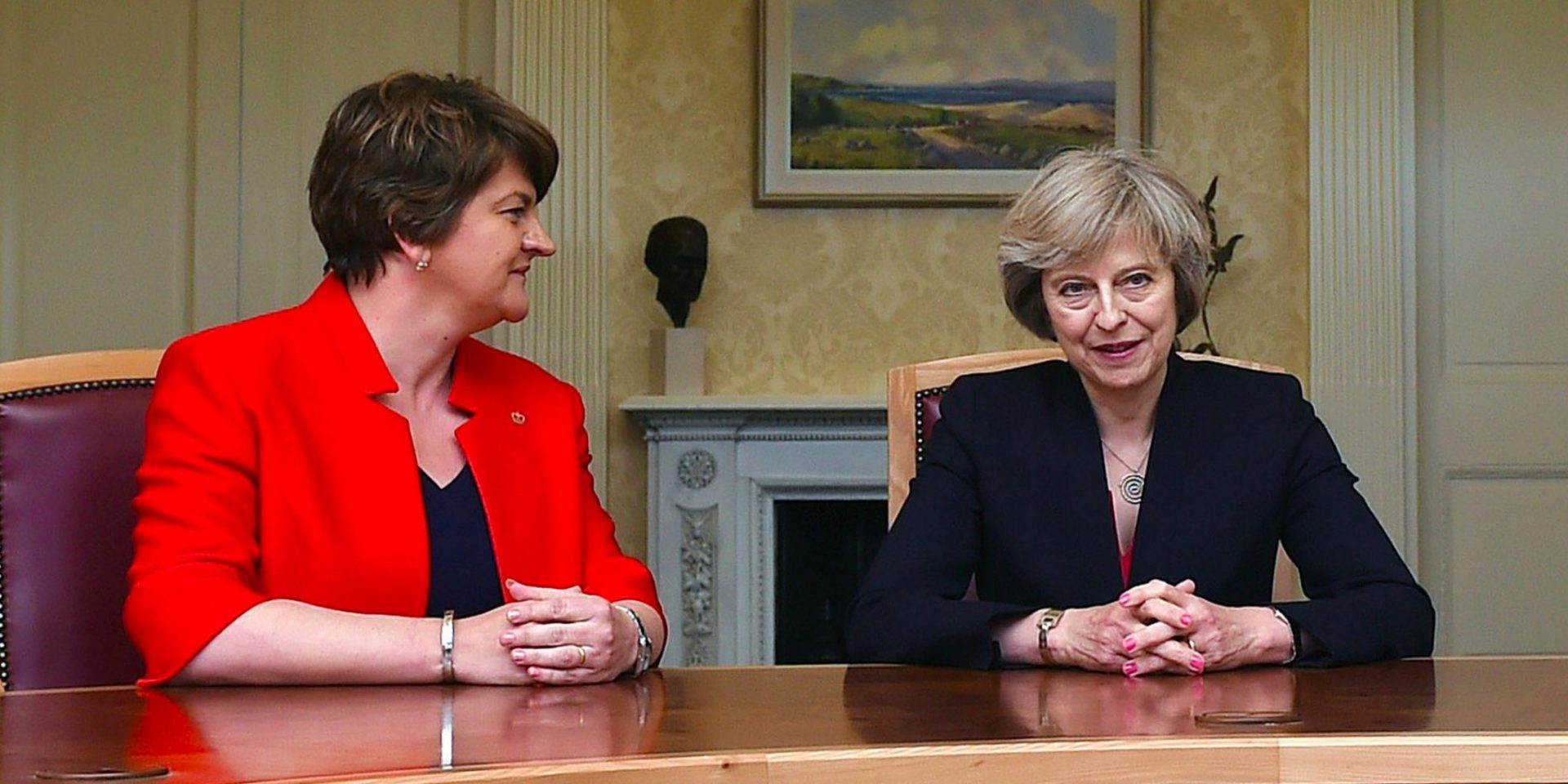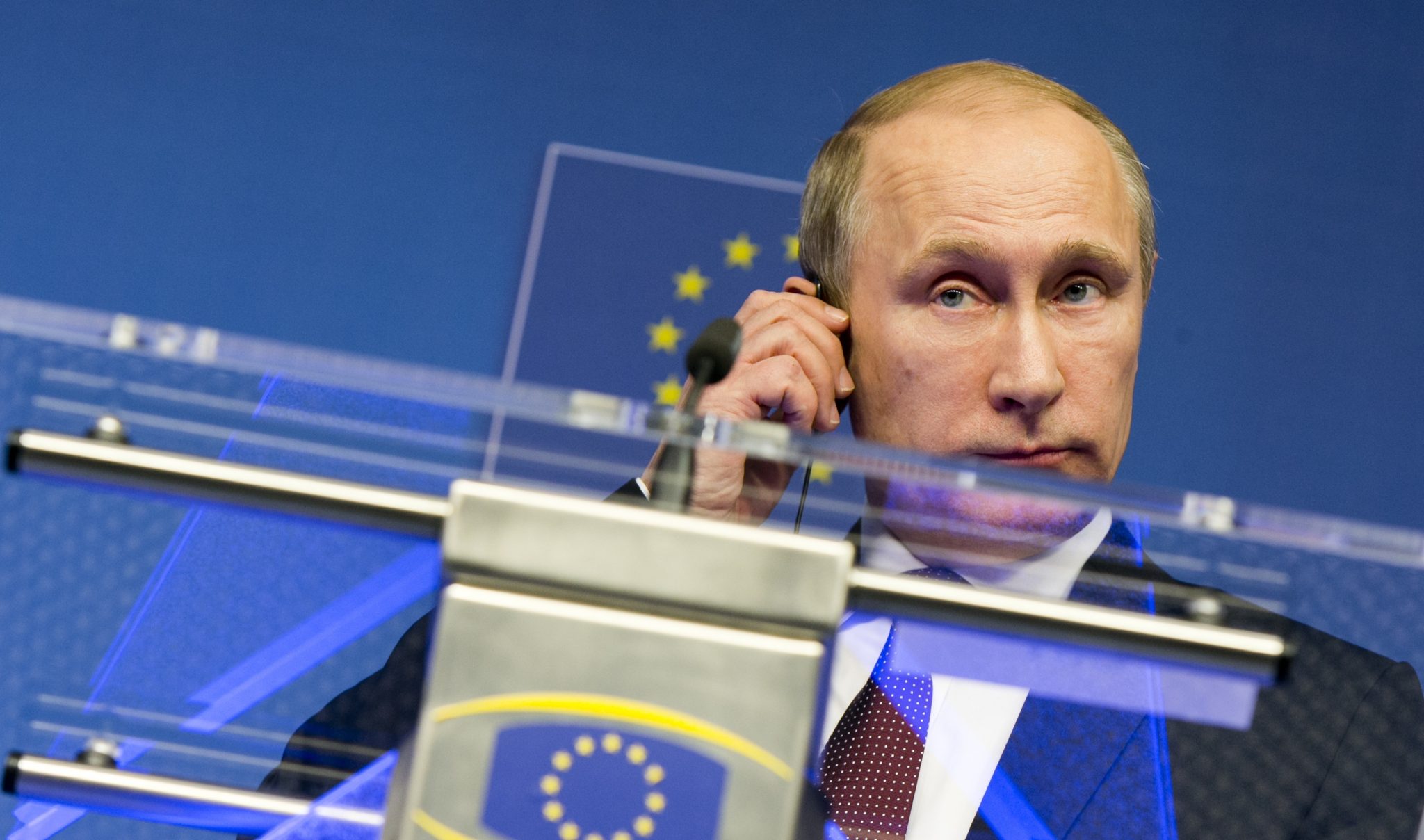
A win by the anti-EU Brexit campaign, already riddled with anti-Muslim bigotry, would not only boost but legitimate xenophobic sentiments against minorities in the U.K. and across Europe.
On June 23rd, my country will decide if it wishes to remain within the European Union. Current polls predict that the ‘remain’ and ‘leave’ (or ‘Brexit,’ short for ‘Britain’s exit’) camps are head-to-head, with some even showing a slim majority in favor of leaving. That is not just surprising, disheartening news. It is upsetting, chilling, horrifying. As a British Asian, a British Pakistani, a British Muslim, and above all, as a proud Briton, I am terrified. We may be on the verge of making the greatest blunder in our recent history. And I fear I may even be underestimating how badly a Brexit might go. Things can change, for the worse, more quickly than we know. Across the European continent, Euroscepticism is rising. Alongside this anti-European Union sentiment, anti-Muslim, anti-immigrant, anti-Semitic and anti-refugee parties and movements are rising, accompanied by a hostility to difference, and preference to believe that difference is new to our history, and not fundamental to it.
In personal conversations, I have found those most eager to leave the European Union are also most uncomfortable with diversity — not just regarding immigration, but of the diversity that already exists in this country. On the other hand, those who are most eager, in my experience, to support remaining in the European Union are far more open to difference in religion, race, culture and ethnicity. But this is not only a personal sentiment. British MP Khalid Mehmood was one of the very few Labour Party members backing Brexit. He is no longer. He called the Brexit campaign “racist,” and wanted nothing more to do with it.
Even the most innocuous arguments for Brexit are animated by English, or British, belief in our self-sufficiency, though even then tinged with petulance — and little thought for the day after. Little concern that a Brexit may provoke Scotland’s departure from the United Kingdom. Many other reasons given for Brexit are simply hard to take seriously. They are, worse than that, likely to provoke outcomes that minorities such as myself would find terrifying, and that promise a future filled with more instability, more anxiety, and more public anger; in effect, Brexit is very likely to strengthen the right-wing forces which have compelled this referendum in the first place.
At worst, they will end up amplifying separatist tendencies in Europe. The fact of a “no” vote — against European Union membership — puts the EU’s future in jeopardy, too. Other member-states may be forced to hold their own referenda, which may cause a kind of unintended and unstoppable domino effect. Only very recently, simply the promise of EU membership, access to the EU market, and the umbrella of European security was responsible for, among other things, turning Serbia into a democracy, encouraging Croatia to hand over war criminals to The Hague, defusing the bloody Balkans conflict and, most critically, bringing Eastern European nations decisively into the Western orbit. Consider how many intra-state and civil wars these days appear immune to resolution, and compare the status quo in the former Yugoslavia. There is much to be desired, yes. But there is also peace.
How would a divided Europe, building on this point, do better? Be any more capable of defending itself from ISIS? Compete in the global economy? Face the refugee crisis? Take that refugee crisis: An already overburdened Greece or Italy, facing a declining European Union in the aftermath of Brexit, might simply “pass the buck,” forwarding those who have arrived on their shores to the next national border, and washing their hands of any responsibilities. The same goes for global terrorism: A weaker EU would mean less intelligence sharing, which would mean more vulnerability to ISIS — which hopes to dismantle the Schengen Area anyhow.
Only recently, I took great comfort in Sadiq Khan’s victory, the Labour candidate for Mayor of London triumphed against a particularly ugly Islamophobic campaign by some elements of the media. I believed, as my fellow Briton Mehdi Hasan argued in the New York Times, that this heralded a new era in British democracy and openness; Khan is a strong voice against anti-Muslim sentiment, but he has also taken bold, necessary and inspirational stands against anti-Semitism, too — see this AJC-sponsored campaign, for example — rightly arguing that criticism of Israel must not be allowed to become merely a convenient cover for bigotry and xenophobia.
However, the anti-EU campaign is riddled with anti-Muslim themes, and paralleled by anti-Muslim, anti-Semitic and xenophobic sentiments across Europe. Just recently, in an exceptionally egregious instance, an ultra-nationalist French citizen was arrested before he could carry out assaults on a hit list of mosques, synagogues and other prominent targets in his country. Elsewhere in Europe, parties like Austria’s Freedom Party, with roots in an anti-Semitic past and openly anti-immigrant sentiment today, are surging, and also skeptical of European integration.
Now, one might argue that a Brexit could happen without fundamentally changing Britain, but should a minority such as myself, who remembers quite well the Islamophobic rhetoric that accompanied and legitimated the Bosnian genocide, merely wave away the resurrection of that language in Europe today?
If anti-European forces triumph in the United Kingdom, and turn on the European Union, then will that make our European continent as a whole more divided, and more prone to foreign interference? Will that, in turn, make for more terrorism, which will fuel more Islamophobia? If xenophobic candidates are more politically successful, and already they are elsewhere in Europe, then their language will be less taboo.
Where language goes, policy follows.
It will be easier for minorities to be attacked, and harder for us to defend ourselves. Because the West as a whole, in which hundreds of millions of people invest so much hope, and on which we rely for so much of our security and prosperity, will no longer exist in quite the same way — but we may only know this too late to reverse this. I would ask what would come in its place. But perhaps the better question is: Who?
- This article originally appeared on Haaretz



